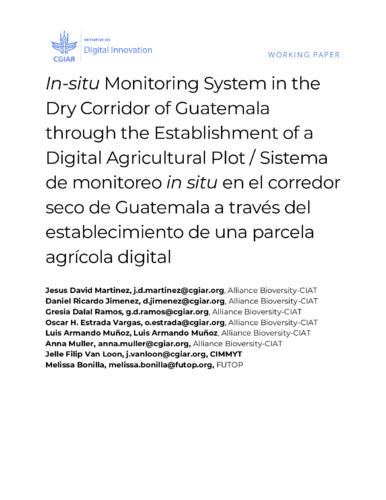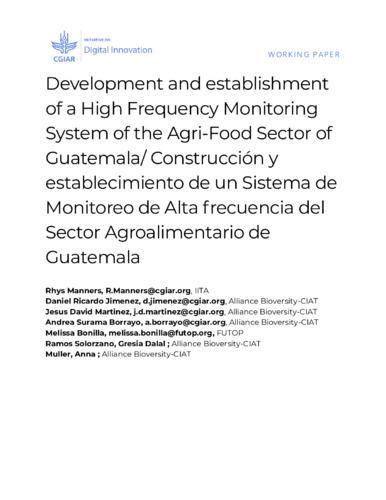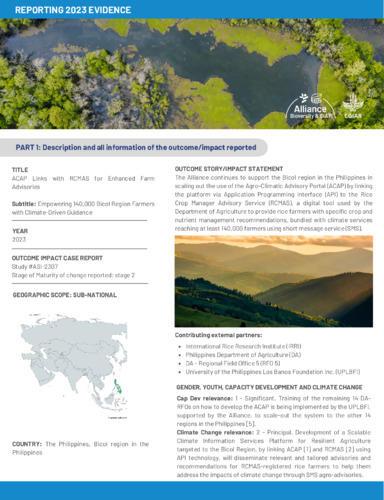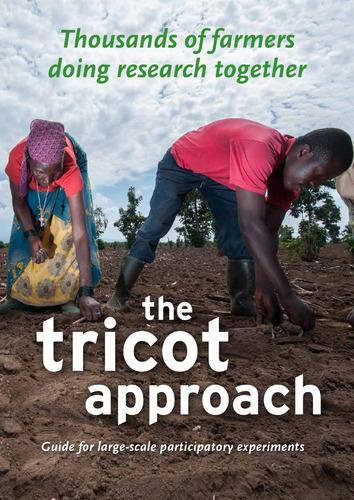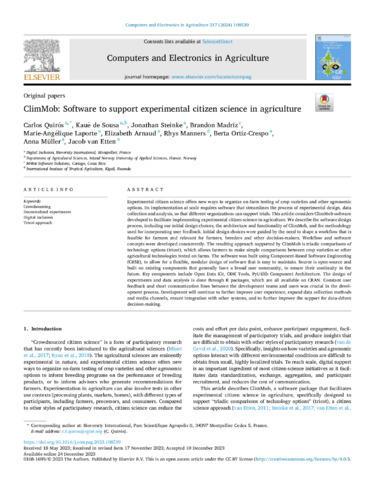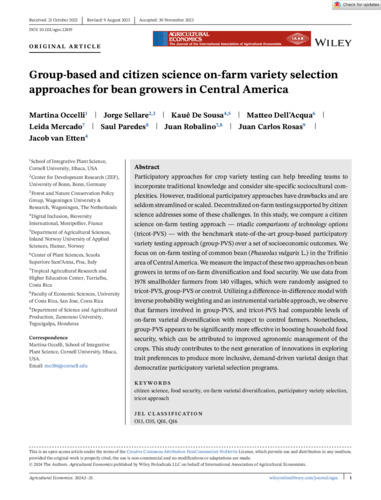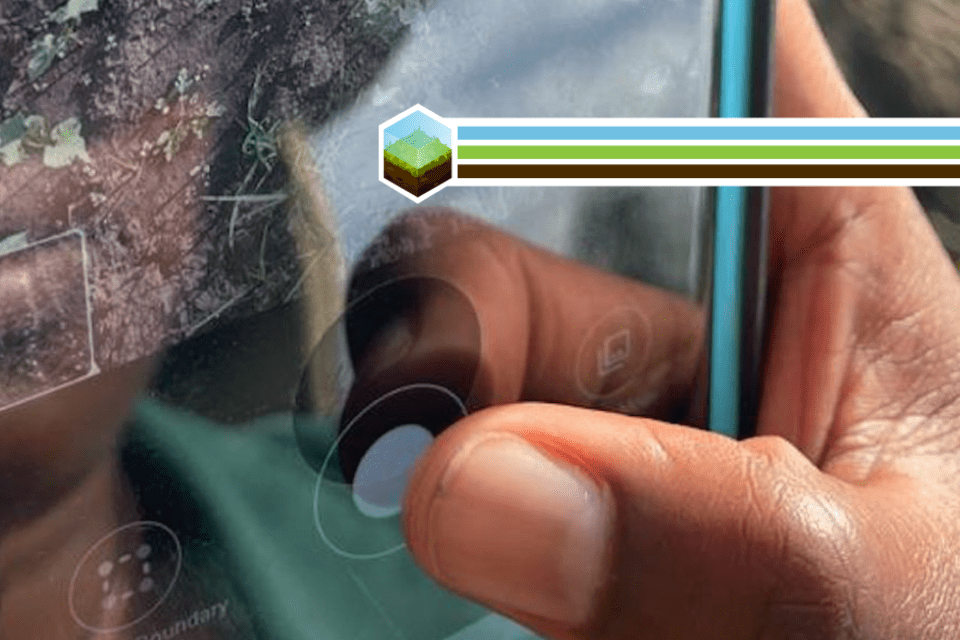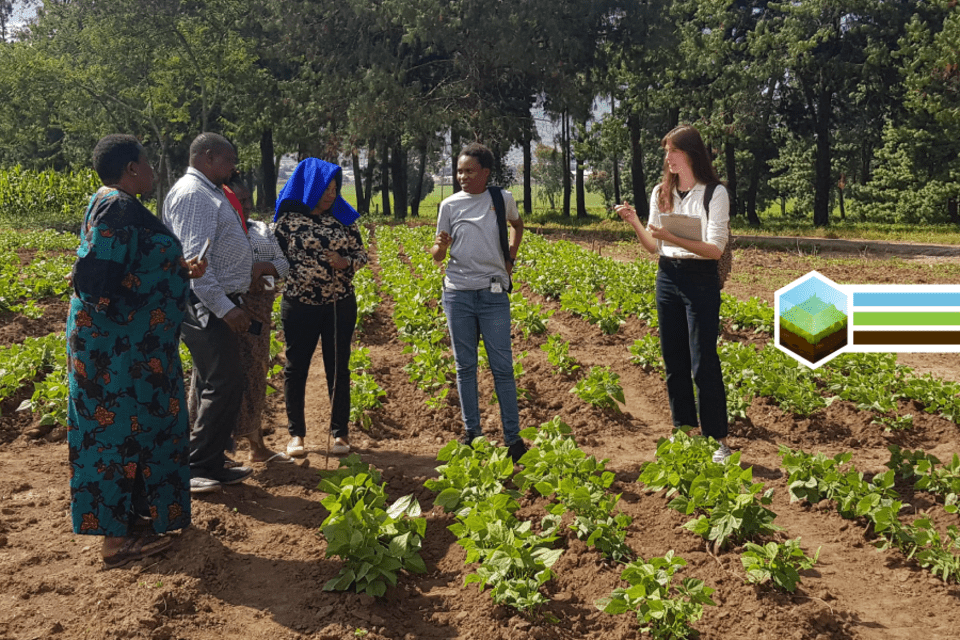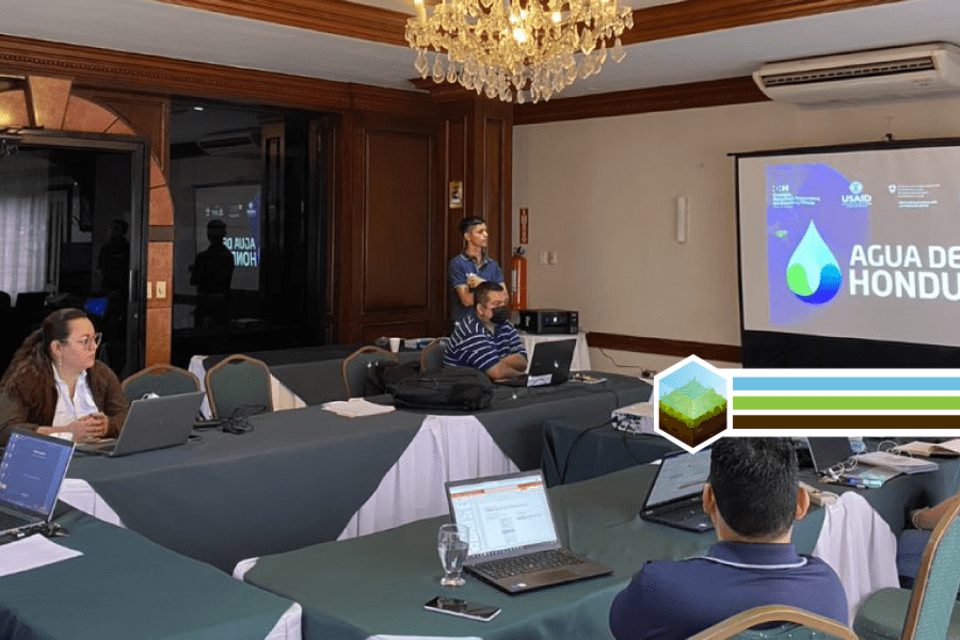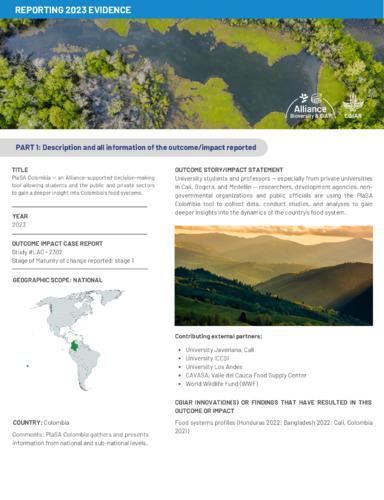2023 Annual report Digital Innovations and Ecosystems
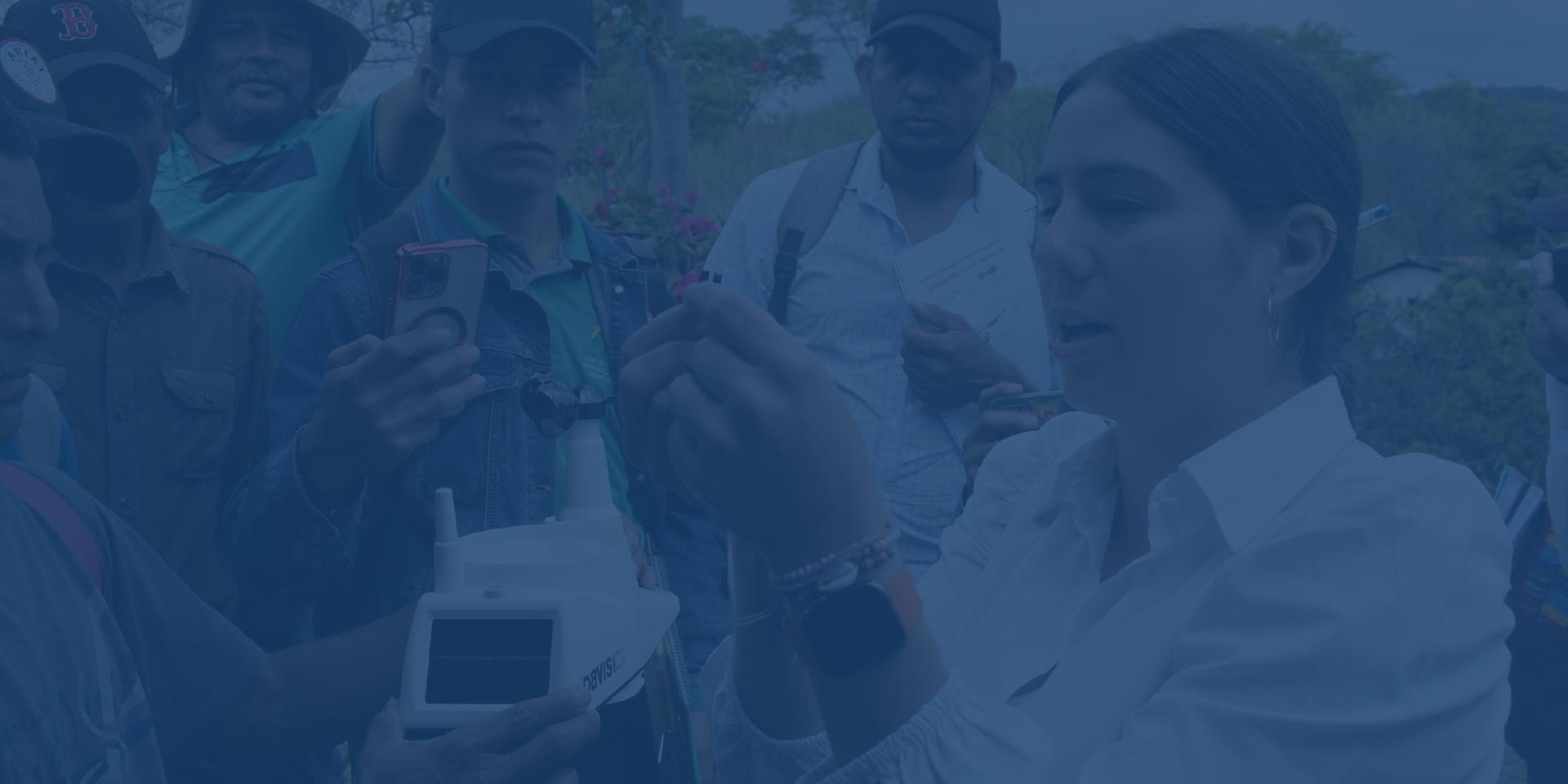
Resilience in food systems is the result of having more and better options for production, as well as the knowledge to effectively implement them. With digital technologies, we have found exciting possibilities to accelerate discovery and knowledge exchange.
At the Alliance, we believe that digital technologies and innovations have great transformative potential when tailored to each target group Therefore, we look at digital ecosystems where entrepreneurs, farmers, service providers and others create value by applying the latest tools and data to increase human capacity.
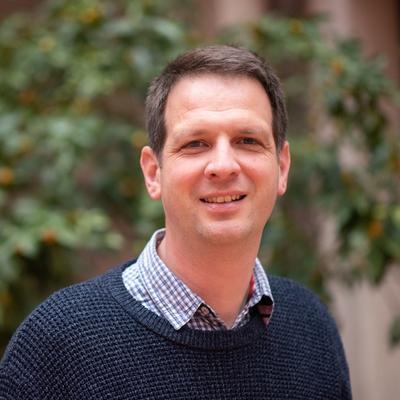
Jacob van Etten
Director, Digital InclusionTracking our Impact: Bundled digital tools reach farmers in the Philippines
Citizen Science
A prime example of our digital innovation is the use of farmer-generated data in our 1000FARMS project, where African farmers engage in hands-on trials with diverse crop varieties, testing their resilience to local climates, soils, and pests. Farmers participate as citizen scientists, with their data collection facilitated by the ClimMob digital platform, developed by the Alliance and its partners. The farmers’ data allows researchers to identify which varieties thrive best under specific conditions, providing crucial information for breeding programs.
Farmers who participate in the project not only gain access to a diverse range of seeds, but also contribute to a growing body of knowledge on crop adaptation. This collaborative effort increases producers’ resilience and adaptability, increasing their capacity to withstand the uncertainties of climate change and other environmental stressors. In 2023, the Alliance’s work with citizen science benefitted more than 150,000 farmers in over 20 countries, working with more than 20 crops.
Artificial Intelligence
Did you know that farmers are increasing crop resilience through artificial intelligence? While AI became a hot topic in 2023, for years we have been working with machine learning to drive rapid, on-farm plant breeding. In trial plots outside the Alliance’s newly renovated office in Tanzania, our Artemis project is refining AI-driven phenotyping tools for use on common and affordable smartphones.
The Alliance is collaborating with Google to develop plant-specific foundation models which reduce the technical requirements for breeding programs to develop their own computer vision phenotyping models. This will open additional opportunities for innovation around the further use of computer vision solutions, beyond plant breeding.
“Mobile phones offer exciting possibilities to collect crop data on-farm, allowing under-resourced breeding programs to access cutting-edge technology and knowledge."

David Guerena
ScientistWater and Soil Maps
Innovative digital tools have enabled us to make great progress in the sustainable management of water resources and soil fertility. In Honduras, the widespread adoption of the Agua de Honduras Platform by national institutions has played a pivotal role in empowering communities to plan sustainable water use, guiding efforts in land conservation, and assisting in risk management, including the appropriate relocation of communities affected by flooding.
In Honduras and Colombia, we have also applied digital tools to soil fertility management. This has led to the development of the Honduras Digital Fertility Map that will provide the basis for agricultural soil management and fertilization efficiency, while in Colombia, an upcoming app is set to aid extensionists in making informed decisions about fertilization use and estimating greenhouse gas emissions associated with different fertilization options.

Jefferson Valencia Gómez
Research Team Leader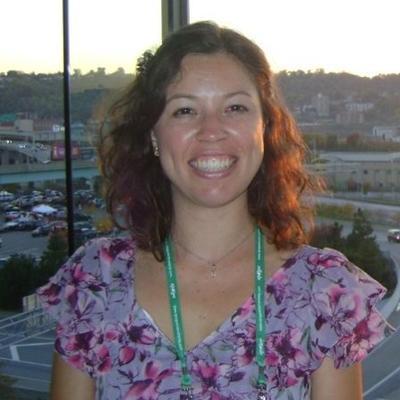
Mayesse da Silva
Senior Soil ScientistDigital Monitoring and Education
Another way we have used digital tools to increase resilience is to crowdsource what people are eating, first in Rwanda and most recently in Guatemala. High-frequency data collected by mobile phone surveys allows health policymakers to closely monitor diet quality, allowing them to understand nutrition trends and provide the required support t vulnerable communities.
Meanwhile, in Guatemala we have helped establish a Digital Agricultural Plot —a forward-thinking project that originated from the collaborative efforts following the "Digital Agriculture" diploma program delivered by the Alliance at the Centro Universitario de Oriente in Chiquimula. This region, known for its challenging dry corridor, now benefits from a technologically equipped plot that serves as a living laboratory. It features in-situ sensors and weather stations, providing valuable data on climate and soil conditions tailored to local agricultural needs.
Both the diet quality monitoring tools and the digital plot use advanced analytics and human-centered design approaches. This integration aims to closely align with the real-life challenges faced by local communities, ensuring that the tools developed are effectively targeted to users’ needs.
In 2023, the Alliance also addressed digital literacy gaps among professionals by expanding the Digital Agriculture Diploma program to include teachers. This ensures that educators are well equipped to disseminate digital agricultural knowledge, thus amplifying the impact through trained students.
These research and educational efforts extend beyond Guatemala. In Colombia, the Alliance collaborates with Universidad ICESI to offer a diploma course on Digital Agriculture. This educational endeavor is part of a broader initiative under the project ‘Climate-smart Initiatives for Climate Change Adaptation and Sustainability in Prioritized Agricultural Production Systems in Colombia’ (CSICAP), which aims to modernize the agricultural extension system through digital tools and artificial intelligence, targeting over 2,000 technicians and reaching more than 120,000 farmers.
Finally, the Alliance has been advocating for the application of cutting-edge technologies in high-value crop products, highlighting the necessity of incorporating advanced analytics and artificial intelligence into agricultural research. These technologies not only focus on increasing agricultural yields, but also on ensuring rural prosperity and land-use sustainability.
Tracking our Impact: Monitoring Food Systems in Colombia

Daniel Jimenez R.
Senior Scientist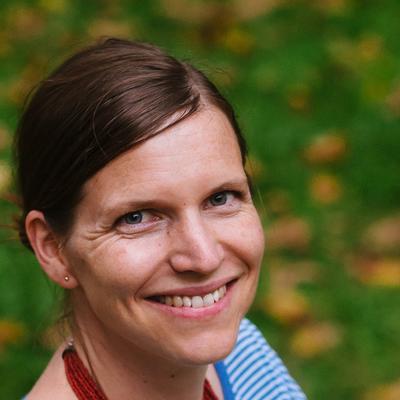
Anna Muller
Scientist, Team Lead Inclusive Design and User Research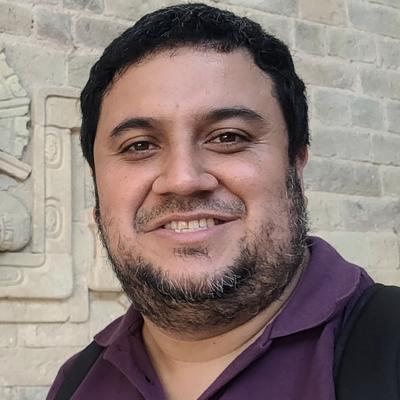
Jesús David Martínez Salgado
Research Specialist, Central America